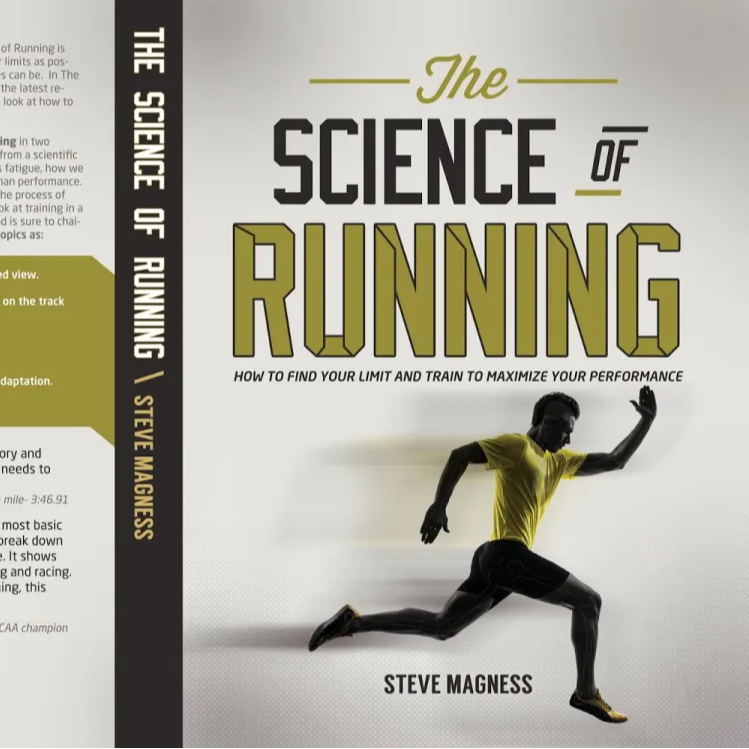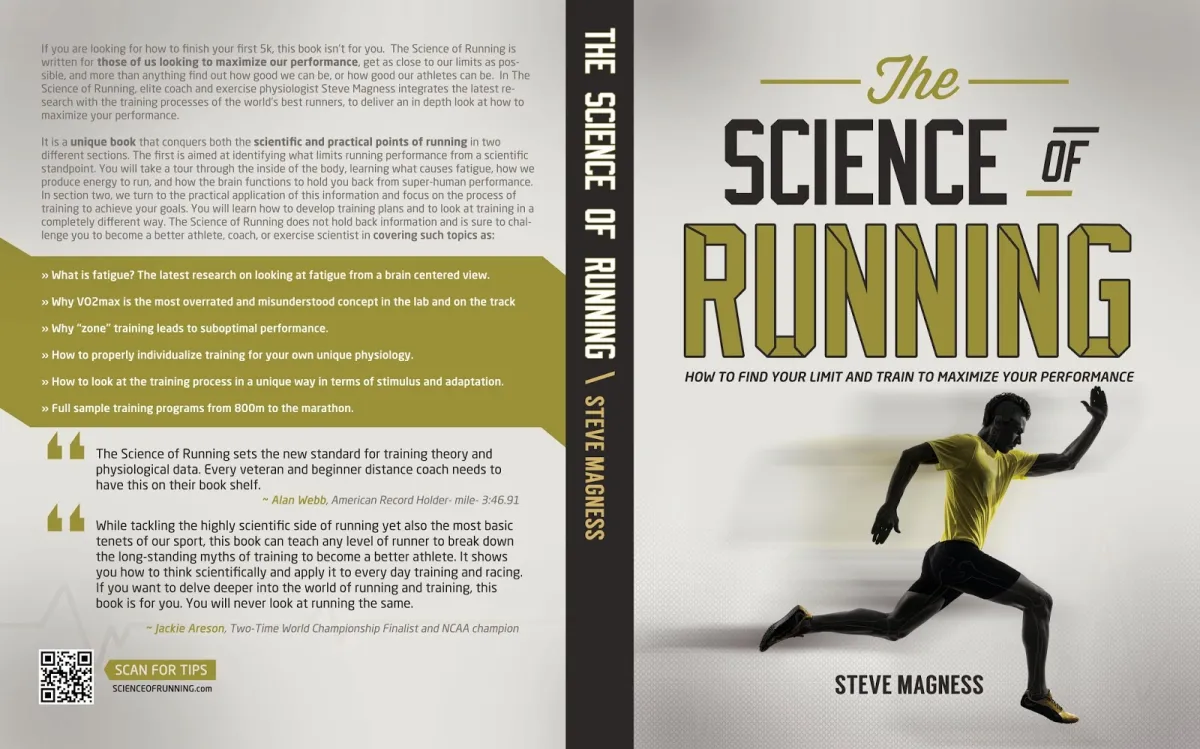
Deep Dive
- 肌肉力量和神经系统协调共同作用于跑步表现
- 撞墙并非单纯由氧化碳代谢限制引起,而是能量系统综合作用的结果
- VO2max并非决定跑步表现的唯一因素
Shownotes Transcript
播客这种媒介形式的魅力,远不止于简单的对谈交流。我注意到,有许多优秀的跑步相关著作尚未有中文译本。借助当前AI技术的发展,我们可以将这些作品中的核心观点提炼出来,以播客的形式分享给大家。如果听众对某本书特别感兴趣,想要深入了解,随时可以去阅读原著。
这一期带来的是*** The Science of Running: How to find your limit and train to maximize your performance ****by *Steve Magness
 Reviews of The Science of Running:"The Science of Running sets the new standard for training theory and physiological data. Every veteran and beginner distance coach needs to have this on their bookshelf."-Alan WebbAmerican Record Holder-Mile 3:46.91 "For anyone serious about running, The Science of Running offers the latest information and research for optimizing not only your understanding of training but also your performance. If you want to delve deeper into the world of running and training, this book is for you. You will never look at running the same."-Jackie Areson, 15th at the 2013 World Championships in the 5k. 15:12 5,000m best If you are looking for how to finish your first 5k, this book isn’t for you. The Science of Running is written for those of us looking to maximize our performance, get as close to our limits as possible, and more than anything find out how good we can be, or how good our athletes can be. In The Science of Running, elite coach and exercise physiologist Steve Magness integrates the latest research with the training processes of the world’s best runners, to deliver an in depth look at how to maximize your performance. It is a unique book that conquers both the scientific and practical points of running in two different sections. The first is aimed at identifying what limits running performance from a scientific standpoint. You will take a tour through the inside of the body, learning what causes fatigue, how we produce energy to run, and how the brain functions to hold you back from super-human performance. In section two, we turn to the practical application of this information and focus on the process of training to achieve your goals. You will learn how to develop training plans and to look at training in a completely different way. The Science of Running does not hold back information and is sure to challenge you to become a better athlete, coach, or exercise scientist in covering such topics as:· What is fatigue? The latest research on looking at fatigue from a brain centered view.· Why VO2max is the most overrated and misunderstood concept in both the lab and on the track· Why “zone” training leads to suboptimal performance.· How to properly individualize training for your own unique physiology.· How to look at the training process in a unique way in terms of stimulus and adaptation.· Full sample training programs from 800m to the marathon.
Reviews of The Science of Running:"The Science of Running sets the new standard for training theory and physiological data. Every veteran and beginner distance coach needs to have this on their bookshelf."-Alan WebbAmerican Record Holder-Mile 3:46.91 "For anyone serious about running, The Science of Running offers the latest information and research for optimizing not only your understanding of training but also your performance. If you want to delve deeper into the world of running and training, this book is for you. You will never look at running the same."-Jackie Areson, 15th at the 2013 World Championships in the 5k. 15:12 5,000m best If you are looking for how to finish your first 5k, this book isn’t for you. The Science of Running is written for those of us looking to maximize our performance, get as close to our limits as possible, and more than anything find out how good we can be, or how good our athletes can be. In The Science of Running, elite coach and exercise physiologist Steve Magness integrates the latest research with the training processes of the world’s best runners, to deliver an in depth look at how to maximize your performance. It is a unique book that conquers both the scientific and practical points of running in two different sections. The first is aimed at identifying what limits running performance from a scientific standpoint. You will take a tour through the inside of the body, learning what causes fatigue, how we produce energy to run, and how the brain functions to hold you back from super-human performance. In section two, we turn to the practical application of this information and focus on the process of training to achieve your goals. You will learn how to develop training plans and to look at training in a completely different way. The Science of Running does not hold back information and is sure to challenge you to become a better athlete, coach, or exercise scientist in covering such topics as:· What is fatigue? The latest research on looking at fatigue from a brain centered view.· Why VO2max is the most overrated and misunderstood concept in both the lab and on the track· Why “zone” training leads to suboptimal performance.· How to properly individualize training for your own unique physiology.· How to look at the training process in a unique way in terms of stimulus and adaptation.· Full sample training programs from 800m to the marathon.
Steve Magness Website: https://www.scienceofrunning.com/)
Steve Magness Podcast: On Coaching with Magness & Marcus)
